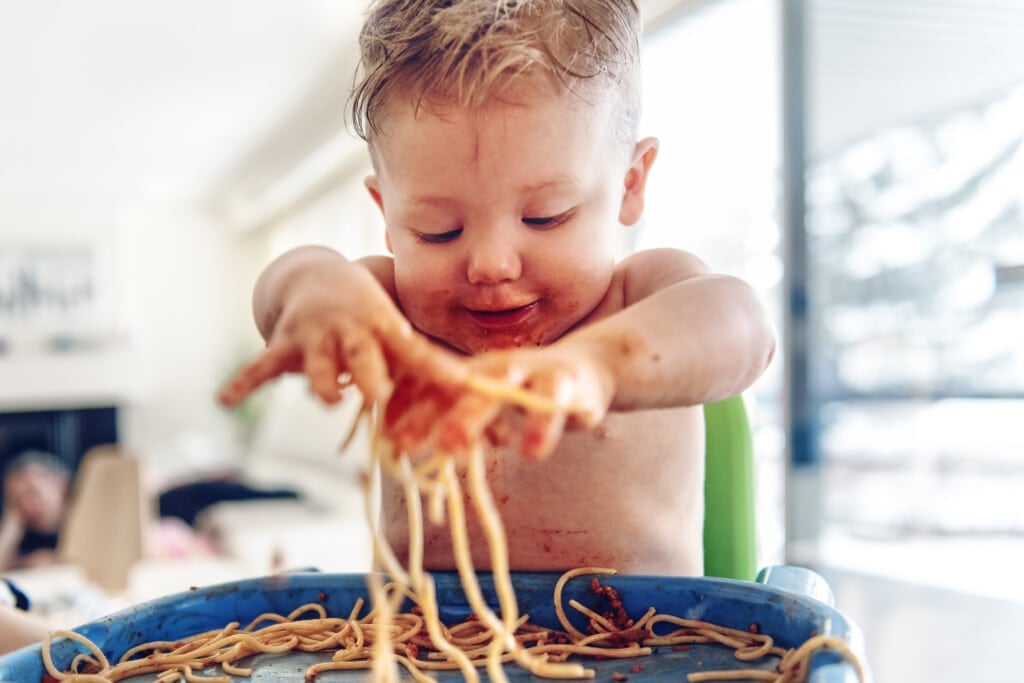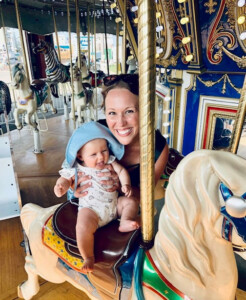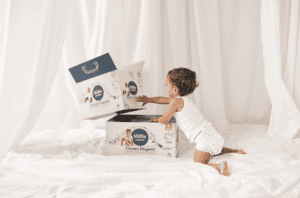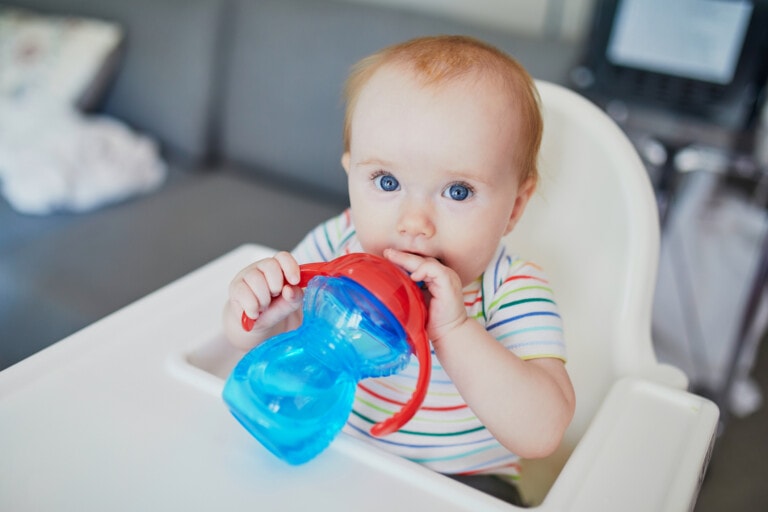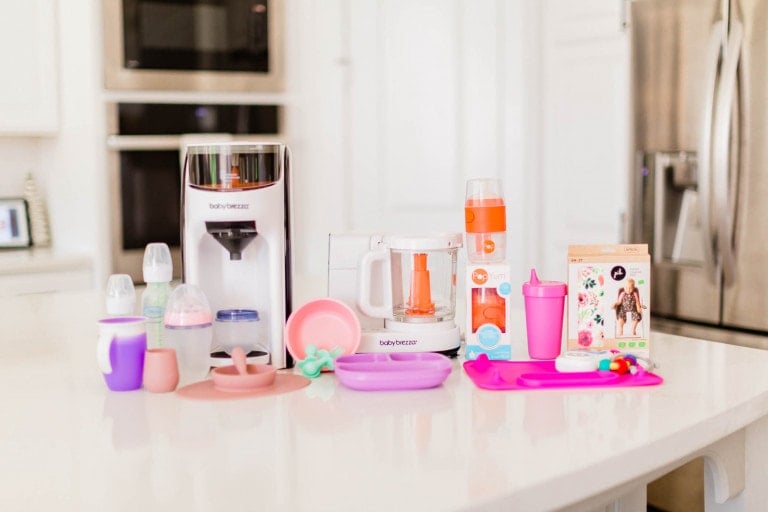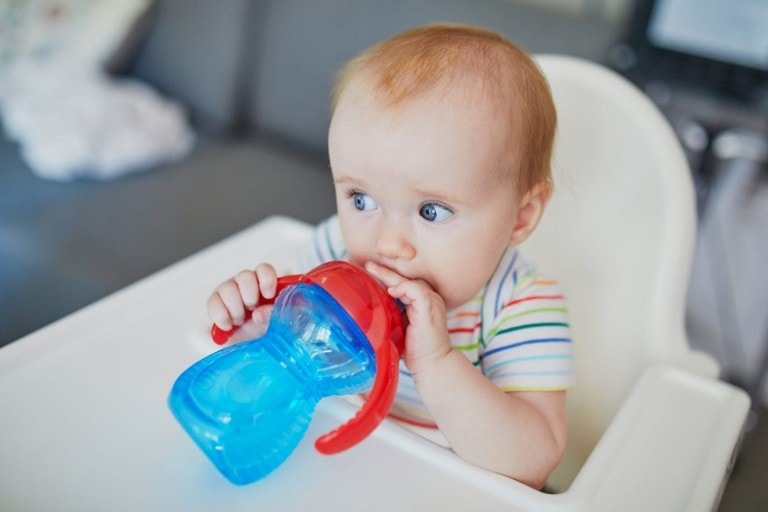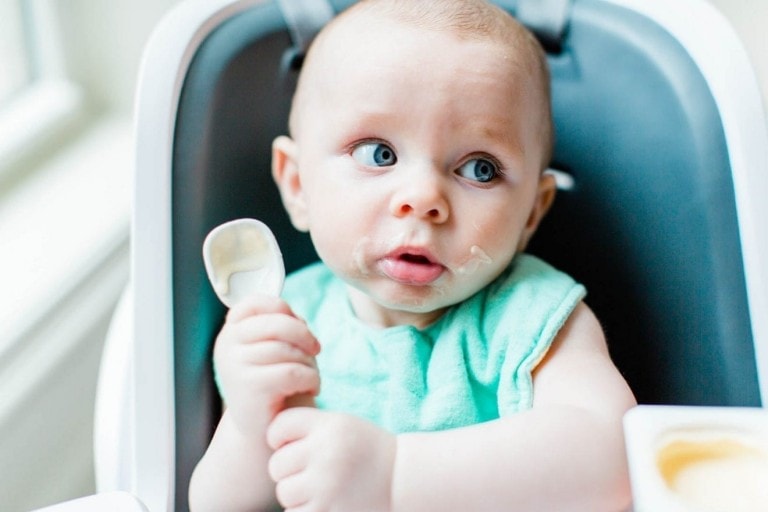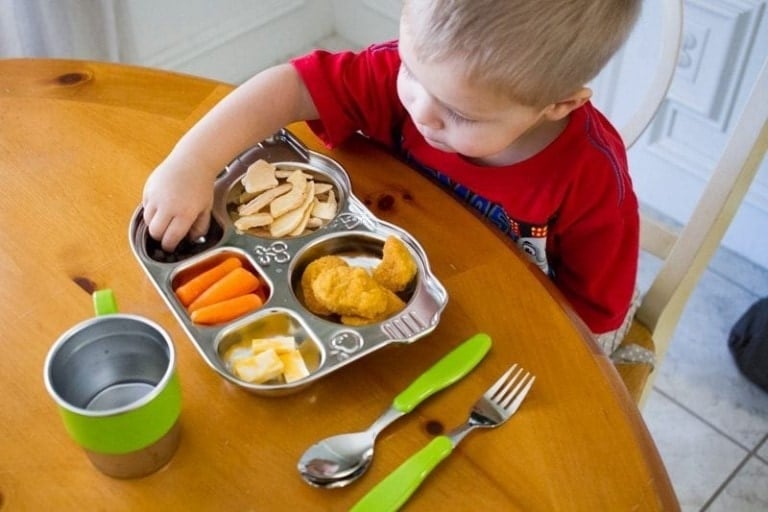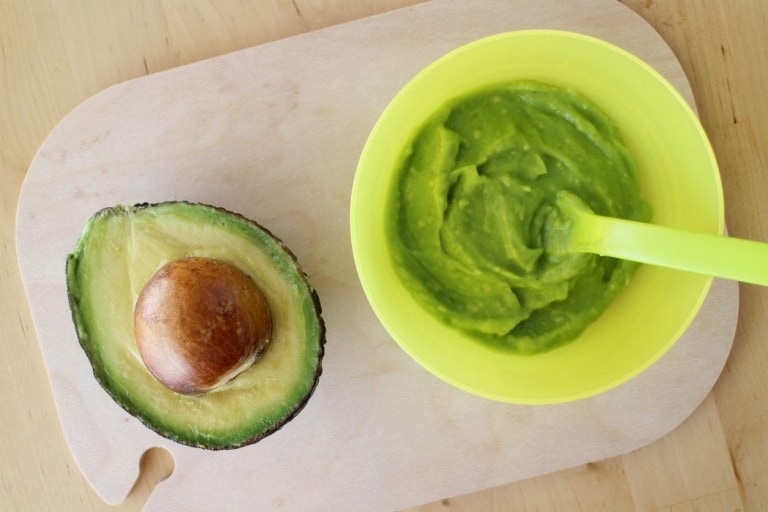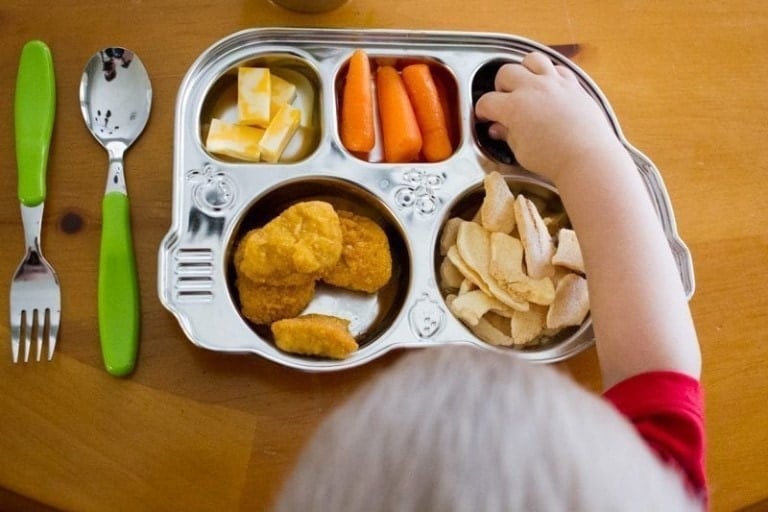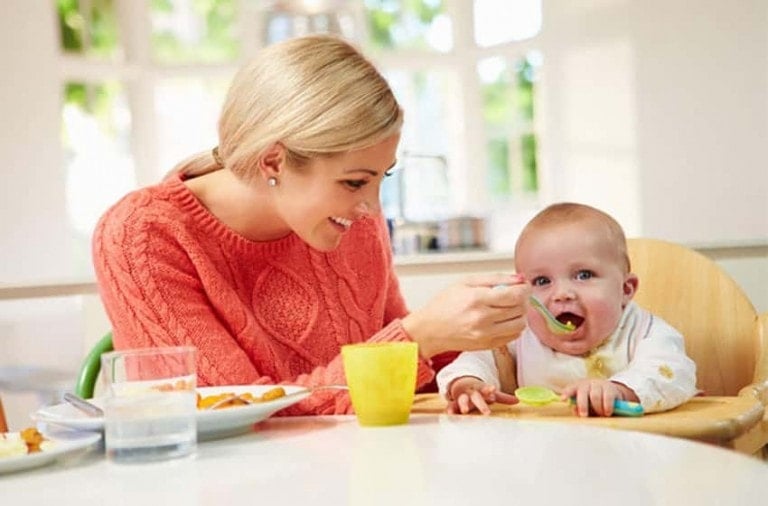As a self-proclaimed recovering perfectionist (in terms of homemaking, read: a stickler for spotlessness) with a background in child development, I’ve learned to bend when it comes to merging my comfort level with the often messy reality of raising tiny humans. My curious, fiercely-independent daughter teaches me this daily. Prime example? Making a mess at mealtime. She’s been self-feeding (and loving it!) for almost a year since she was six months old. And I’m here to assure you. It is okay to let your baby make a mess at mealtime. In fact, it’s a great idea!
Sure, it can be hard for us as parents to let our babies make a total mess while eating. Sticky high chairs, stained clothing, and slippery floors are all a part of it. Understandably, we’d want to prevent as much of the mess as possible. At the same time, though, letting go of some control in this area can provide endless benefits for babies.
Babies learn through autonomy.
While it’s certainly our job as parents to guide our children and redirect them as needed, it’s also important to step back and allow them to figure things out for themselves sometimes. Whether you’re going with baby-led weaning or sticking with purees for a bit, the level of independence we allow our kiddos to have while eating will naturally impact their ability to self-feed, grow confident, and be content in their mealtime habits and choices over time.1
Messy eating promotes independence and self-feeding skills.
Children learn early to explore using their hands and by bringing their hands to their mouths. When you encourage your child to use their hands in messy food play, it’s expected that they will eventually bring their hands to their mouths. Sometimes they may miss, dropping food on themselves and the floor. That’s okay! This play and exploration is providing your child with critical opportunities to taste different flavors and textures.
Mealtime provides the opportunity for babies to hone other important skills.
Low-stress, baby-friendly dining allows little ones to work on fine motor skills, oral motor skills, and hand-eye coordination, to name a few.2 When babies are allowed to participate in self-feeding, they’re also given a chance to develop skills that will carry over into countless everyday tasks and life skills in the years to follow. While this might mean messiness, for the time being, you’ll be grateful down the road. I can guarantee that no one came out of the womb knowing how to spin spaghetti perfectly onto a fork. We had to start somewhere, right? Practice makes perfect!
Messy eating improves oral skills.
“Hot!”
“Cold!”
“Brrr!”
“Squishy!”
“Sticky!”
. . . and, you guessed it, “messy!”
These are just some of the words my toddler has seamlessly picked up while enjoying her daily dishes. When we let our babies make a mess at mealtimes, and they’re given free rein with what’s in front of them on the high chair tray, dinnertime dialogue evolves more naturally. The result? A growing vocabulary they’ll be eager to make use of! Touching, smelling, and tasting food on their own messy terms allows babies to make sense of mom and dad’s otherwise irrelevant descriptions.3
In addition, when we let our kids play with their food, they first start making connections with how the food might “behave” when they put it in their mouth. Does it bend, crumble, squish, etc.? They then recognize these responses when they move the food from their hand to their mouth. This, in turn, helps them perfect the skills required from all muscles and body parts required for chewing, like their tongue, gums/teeth, and cheeks. Improving their oral functioning helps them not only with managing different senses and textures when they eat but also has other influences on muscle tone in the mouth (helping a raft of other things like talking or other oral skills).4
It reduces picky eating!
Not only does sensory exploration allow little ones to learn about the world around them in a way that’s both fun and engaging, but it’s also a critical component of early development. By interacting with their food in a hands-on manner (rather than being carefully spoon-fed and wiped clean after every bite), babies’ sensory receptors are engaged and activated. This helps their brains make sense of the new textures and tastes being introduced. It also sets the stage for openness to other tastes and textures in the future.5
Also, when mealtimes are fun and your child is given a chance to explore and play, mealtimes lose the drama or stress (that can develop if your child is a picky eater) and become something they look forward to. Happy mealtimes encourage healthy eating habits.6 Another benefit is that when our children self-feed, they learn through trial and error. When your child can freely explore food, tastes, and textures (but more importantly, pacing themselves and the rate at which they intake food), it helps them learn to read their hunger cues, which leads to more healthy attitudes towards food down the track.6
I don’t know about you, but if that means there’s a greater chance my child will be less likely to be a picky eater as she grows, I’ll take it!
It makes mealtimes happy and healthy.
Speaking of sensory exploration, what better way to ensure your baby enjoys mealtime than by letting them have fun with it? You don’t need to endorse full-on family food fights to achieve this, but a little bit of leeway regarding messiness at the dining table never hurt anyone. When the focus is on nourishing our bodies instead of keeping our faces and floors squeaky clean, we teach our children the value of a healthy relationship with mealtime. Even more, this allows us to create happy memories around the dinner table we’ll all look back on one day and cherish. Plus, a happy baby at dinnertime means everyone gets to eat in peace.6 Win-win!
The perks go on and on.
As we all know, raising babies comes with the constant duty to clean up after humans other than yourself. Mealtime is no exception. Sure, letting our babies make a mess at mealtime can be a scary adjustment for many parents. That being said, I urge you to consider the benefits of allowing your little one to eat like the adorable, sticky-fingered, bath-needing little being they are. You’ll be amazed at how they constantly learn, explore, and discover, even in the most mundane moments of everyday life. If making a mess in the high chair means more positive associations with food, family time, and self-feeding, so be it! Your patience will pay off down the road. I promise.













